As it stands, 108 large-scale renewable energy projects worth an estimated $36 billion to the QLD economy are in the development pipeline. “The projects in the pipeline now could be just the beginning,” says Solar Citizens’ National Director Ellen Roberts. “Queensland can have a bright economic future using cheap renewable energy resources to power advanced manufacturing and create a new export industry.”
Covid-19 Impact & Recovery
The GEM analysis comes as a welcome relief in the face of a significant economic impact caused by Covid-19. QLD Government modelling suggests the state economy could take a hit of around $10 billion from the pandemic’s effect, to put that into perspective, that’s two billion schooners of XXXX.
GEM and Solar Citizens are by no means alone in their finding that renewable energies could serve as a foundation of Australia’s economic recovery from the impacts of Covid-19. Last weeks virtual Clean Energy Council (CEC) Clean Recovery Forum saw more than 1,000 industry members concurring with the strategy that bringing gigawatts of renewable-energy projects forward through the pipeline will:
- Create over 50,000 new direct jobs, and many more indirect jobs during construction
- Triple the amount of large-scale renewable energy installed in Australia with the addition of more than 30 GW of new capacity
- Inject $50 billion of investment into the Australian economy — much of it in rural and regional areas.
Additionally, a new study from the Centre for Future Work also found that solar, wind and hydro industries had the potential for a manufacturing boom.
Roberts noted that the job opportunities that renewables can provide to regional Queenslanders would go a long way to boosting the struggling economy. “But renewable projects are facing mountains of hurdles and developers are saying to us, ‘we’re looking down south,’ because the incentives are just not here to bring the projects to Queensland.”
This last comment may sound somewhat bizarre considering the QLD Government only last week announced 15 MW of solar across five shopping centres; let alone the announcement that Neoen’s deal with CleanCo means that South West Queensland will soon be home to Australia’s largest solar farm.
Nevertheless, Roberts is right to be worried, in the greater scheme of things, the above-mentioned projects are nothing compared to the potential 21 GW of utility renewable capacity waiting in QLD’s pipeline. The projects are being held up by policy uncertainty and obsolete transmission infrastructure.
What is Queensland’s problem?
At the end of 2019 GEM’s Director of Analysis and Advisory, Tristan Edis, described Queensland as “a canary in the coal mine” because the state’s construction commitments to large scale wind and solar farms shrivelled to almost zero in 2019.
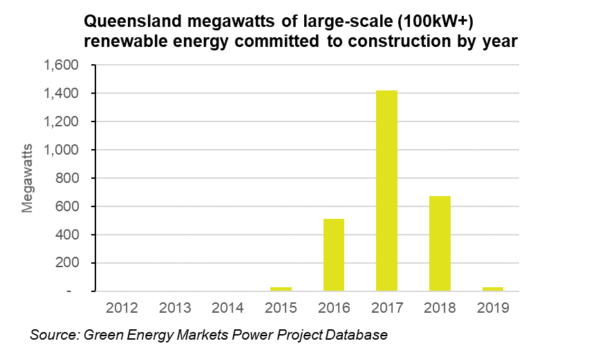
Edis argued the implications this grinding halt in renewable construction would have on employment. Edis notes that by November 2019 the number of people employed in solar farm construction would fall below 1,000. Although, this number is set to increase by a factor of half, thanks to Neoen.
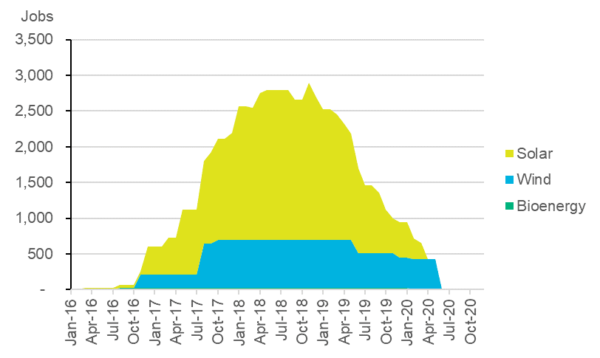
Edis blames the grinding halt on the collapse in value of renewable energy certificates following the 2020 Renewable Energy Target which meant that many project developers would receive little financial benefit from their intention to reduce emissions. This is to say that if the federal government hadn’t left a energy policy vacuum project investors would’ve had a much more stable platform from which to invest.
“Energy policy uncertainty, transmission issues and grid restraints are killing renewable investment in Queensland,” said Roberts, “and therefore, killing the potential for new renewable jobs. “The State Government needs to support 1-2 GW of new renewable energy generation each year for the next five years to maintain a strong jobs and investment pipeline.”
This content is protected by copyright and may not be reused. If you want to cooperate with us and would like to reuse some of our content, please contact: editors@pv-magazine.com.



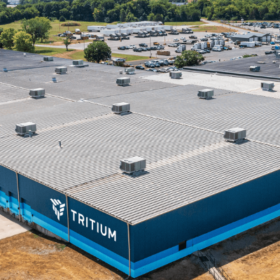
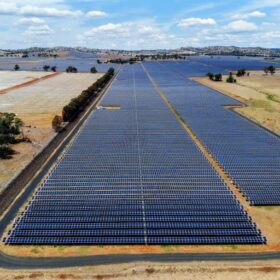
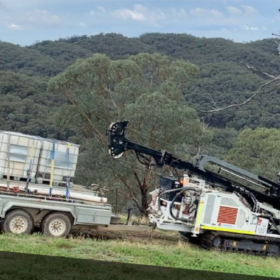
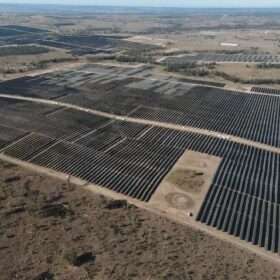
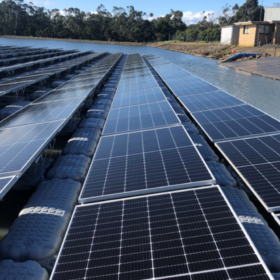
By submitting this form you agree to pv magazine using your data for the purposes of publishing your comment.
Your personal data will only be disclosed or otherwise transmitted to third parties for the purposes of spam filtering or if this is necessary for technical maintenance of the website. Any other transfer to third parties will not take place unless this is justified on the basis of applicable data protection regulations or if pv magazine is legally obliged to do so.
You may revoke this consent at any time with effect for the future, in which case your personal data will be deleted immediately. Otherwise, your data will be deleted if pv magazine has processed your request or the purpose of data storage is fulfilled.
Further information on data privacy can be found in our Data Protection Policy.